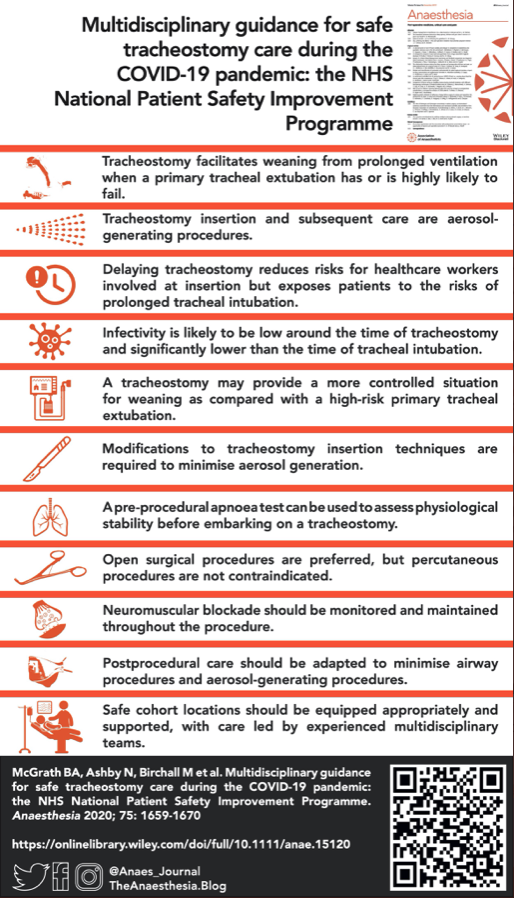Improving Tracheostomy Care

Tracheostomy is performed in around 10-13% of all level 3 ICU admissions in the UK. The clinical course of Covid-19 in the critically ill has not yet been fully characterized but there are considerations for patients with new or existing tracheostomies, highlighted below. Due to the risks of infection to healthcare workers, we need to change how we plan, insert and manage tracheostomies in patients with COVID-19 disease. These changes balance the infection control risks of contact/aerosol spread of the virus versus the best management for the patient with a tracheostomy.
This guidance is written for UK hospitals but is applicable elsewhere. You may adapt/adopt these guidelines without permission. The guidance may change as data on tracheostomy in the Covid-19 becomes available. Importantly, all of the major UK stakeholder organisations in tracheostomy care have collaborated in order to standardise their guidance for tracheostomy management. This will help healthcare workers not he front line by providing consistent, authoritative, practical advice.
The guidelines have been reviewed by:
- Association of Anaesthetists
- Association of Chartered Physiotherapists in Respiratory Care
- British Association of Head & Neck Oncologists
- British Association of Oral and Maxillofacial Surgeons
- British Laryngological Association
- Difficult Airway Society
- ENT-UK
- Faculty of Intensive Care Medicine
- Intensive Care Society
- National Tracheostomy Safety Project
- NHS England & NHS Improvement
- Patient representation
- Royal College of Anaesthetists
- Royal College of Nursing
- Royal College of Speech & Language Therapists
The documents here have been developed by the NTSP, with some examples of what is being used in Manchester University NHS FT and the Innovation Agency. Further guidance will be added here as soon as it is published/approved. The scientific publications that support these summary key guidelines will be available in press shortly. NHS England will also launch their National Patient Safety Improvement Programme (NatPatSIP) Safer Tracheostomy Care imminently.
